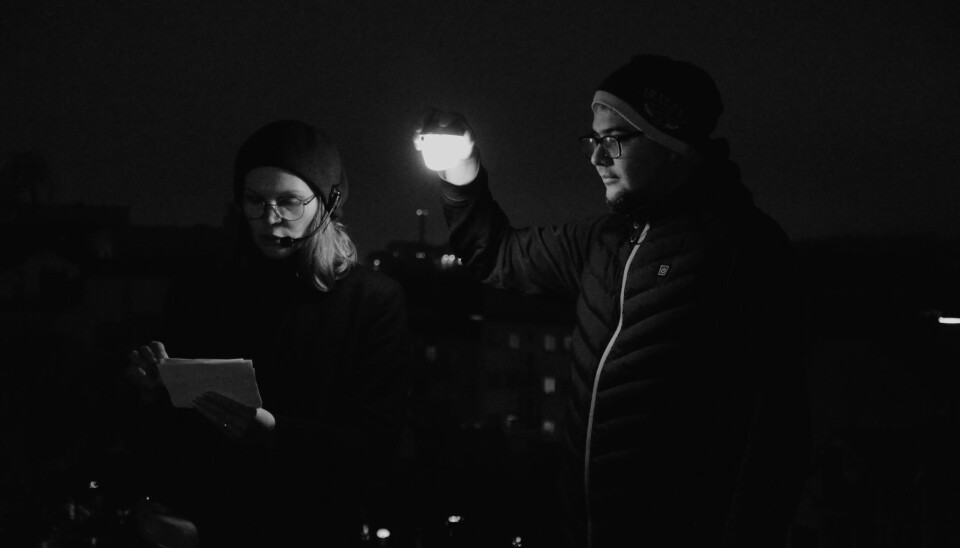
Remembering the repression of the Stalin era in Russia, returning the human dimension to the deaths
The Barents Observer spoke with five people who took part in the “Returning the Names” event abroad. All of them turned out to be descendants of the repressed, and four of them are themselves victims of repression — of the modern era. We are publishing their stories and the names they read.
On October 29, all over the world, a memorial event for the victims of political terror, “Returning the Names,” took place. The names of the repressed — including those being repressed today — were read aloud in European cities, on both American continents, in Asian countries, and in Australia. And, of course, in Russia, where people remembered the victims of terror despite the opposition of officials and security forces.
The Barents Observer spoke with five participants of the “Returning the Names” event who are now living outside of Russia. The Russian state "awarded" one of our heroes with the title of a foreign agent when he left the country. Another heroine is facing threats from former countrymen. Only one of our interlocutors left the country of his own free will.
“Our times are always ‘like that’”
Elena, Tbilisi (name changed at the request of the heroine). Left Russia for ideological reasons in the autumn of 2022.
You asked about what I feel. Somehow I couldn’t admit it to myself, but probably it’s… it’s a feeling of guilt. Guilt because I still haven’t properly studied this history.
In our family no one talked about the fact that there was a repressed person in our family. And even now they don’t talk about it. But my grandmother mentioned in passing that her father was taken away in 1937 because of a denunciation, and after that his fate was unknown. Grandmother couldn’t remember his patronymic, age, place of birth — all this is unknown. But the fact that he was taken away in 1937 — that’s for sure; grandmother was five years old then.
The family did not search for him, they couldn’t. They themselves had fled from the civil war in Latvia and, as grandmother says, they kept their heads down, lower than the grass, quieter than the water. In general, many things were not spoken about in the family.
Many participants of the “Returning the Names” event include the names of their relatives in the lists they read. But I can’t even do that, because I know almost nothing. When I became interested, it was already the beginning of the full-scale war, and “Memorial” was closed, and when I decided that I had to dig something up, I no longer understood where to turn and how to search at all.
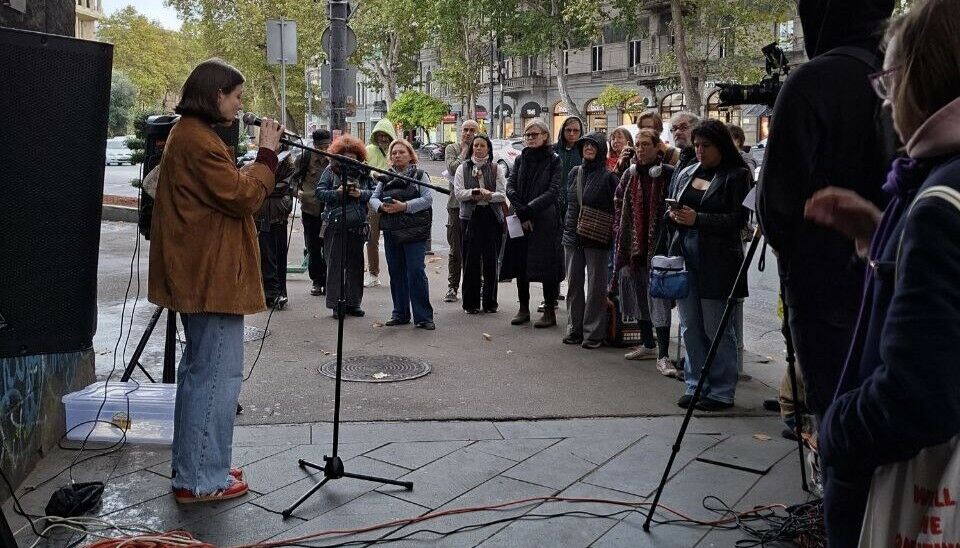
So I read the names of people unknown to me. And it’s good that at least some names are known. And I really believe that it’s important — to name them.
My great-grandmother fled from the war, but never found a homeland for herself. They lived modestly, hiding, in fear. And now I myself feel like an exile. In Russia now there are people who are being killed in prisons. All this has come back because we, as a society, lacked openness and honesty. Because the people in power remained the same. My mother says about Stalin’s repressions: “That’s just what those times were like.” I disagree. Our times are always “like that.”
“Stalin ate him”
Alexey Duplyakov, Turku. Born in the Moscow region, received political asylum in Finland. While living in Russia, he took part in the protest movement, was a member of the “Yabloko” party. He left Russia after of the mobilization. In 2024 he organized the “Returning the Names” event in Rovaniemi, the capital of Lapland. This year he became the organizer of the event in the city of Turku in the southwest part of Finland.
My own great-grandfather was a barely literate peasant in a Ukrainian village. They had a community of Old Believers in the Zhytomyr region. And no one knows why he was shot.
I found out about this rather by chance. At some point, I realized that my grandmother never said anything at all about her family, about her childhood, never mentioned her parents. And all I managed to get out of her was that she remembered her father poorly, because Stalin ate him. That was her exact phrase.
I learned about my great-grandfather’s fate a few years ago: I went to study the “Memorial” database and stumbled upon his surname. I know about him that he was a laborer. He was accused of anti-revolutionary propaganda and shot by a troika verdict in the fall of 1937. We can only guess: perhaps they could have been repressed for their faith, for some offhand remark — but no one knows for sure.
All that is left of my great-grandfather is a brief summary in the archives. He was taken away at the end of 1937, when my grandmother was 5–6 years old at that time, and she apparently really remembered very little about her father. But the fear that settled in the family was so deep that even decades later they did not speak about it.
It was not even part of our family’s memory; there simply was no such person. But inside them something clearly was going on, and one can only guess what exactly. And when I think about how hard it is for me, I try to think about how hard it was for them, for my family.
On February 24, 2022, I woke up with the understanding that the country had changed. That is, everything we were doing already made no sense under conditions of a real war.
In the first days, I took part in protests against the so-called special military operation. I practically didn’t sleep for several days; everything merged into one big protest… In the end, I was detained; a protocol was drawn up for participation in a rally. For me, this was not the first such fine, but this time something changed. The district policeman came and said that now it was wartime, and if you get caught somewhere again, we’ll be talking to you in a different way.
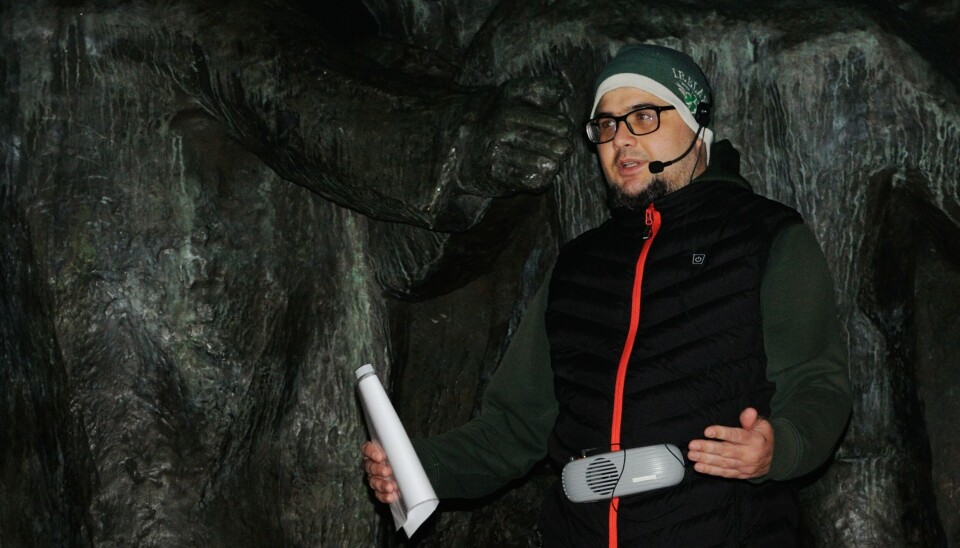
We are already at the stage when people are being imprisoned for songs, when for a like on the internet one can easily get a real prison term. And if history is being allowed to repeat itself, if repression has returned, then the memory of these events and their victims must also return. And it must be some kind of institutionalized memory that would be a guarantee that this time we will not let those who conduct and organize these repressions escape responsibility.
And I think it is very important to talk about history right now: what we can influence is precisely the work we do with our memory, with our legacy.
You read these names and realize — this person worked at a factory, and when he died he was 28 years old, he was younger than you are now… This can be felt, lived through again — and set to oppose to the dehumanization that the state is imposing on us.
There is a famous phrase: “The death of one person is a tragedy, the death of millions is a statistic.” We live in a time of war, every day we read in the news how another Russian missile hit another house in Ukraine, and people died there, and this just becomes a number. “Returning the Names” is an attempt to return the human dimension to the deaths — and to repressions in general. There was someone who suffered this fate, and then they were gone — simply because someone wanted it to happen.
“With their own deaths they paid for my right to speak freely”
Valery Potashov, Leipzig. Journalist in exile. He left Russia after his home was searched a second time, during which handcuffs were put on him. As he was crossing the Lithuanian border, he received the status of a foreign agent from the Russian Ministry of Justice. He now lives in Germany on a humanitarian visa.
Most people know the names of famous people that were repressed — directors, actors, priests. But behind them there are hundreds of thousands who almost no one remembers today. After all, the goal of repression is to grind a person into powder, into camp dust; and the meaning of this event today is precisely to pronounce these names, to return them.
For me, for the past ten years, this event has been an act of solidarity with those who today resist the revival of the NKVD. We went out to the streets with posters in support of Yury Dmitriev [who investigated Stalinist represssions], stating “No to the revival of the NKVD.” And some passers-by asked — what kind of revival are you talking about? Well, today we have it in its pure form. When street musicians are repeatedly arrested for performing songs by “foreign agents” — that’s exactly what it is.
I have been participating in the “Returning the Names” event for a long time. Before that, I used to go to Sandarmokh, to Krasny Bor. And, as a rule, at such memorial events I remember, first of all, my grandmother’s brothers — one was shot, and the other died in the Gulag. And second — my fellow villagers from the village of Shizhnya and the village of Luzhmavarakka, which no longer exists.
Just to understand the scale of repression, it’s enough to enter the surname “Kanshiev” into the “Memorial” database. And one can see that, for example, from the village of Shizhnya four people were convicted who have this surname and the same patronymic. Most likely, they were brothers. Two of them died in the Gulag almost immediately; perhaps they died of disease, or they were shot during the transportation of prisoners.
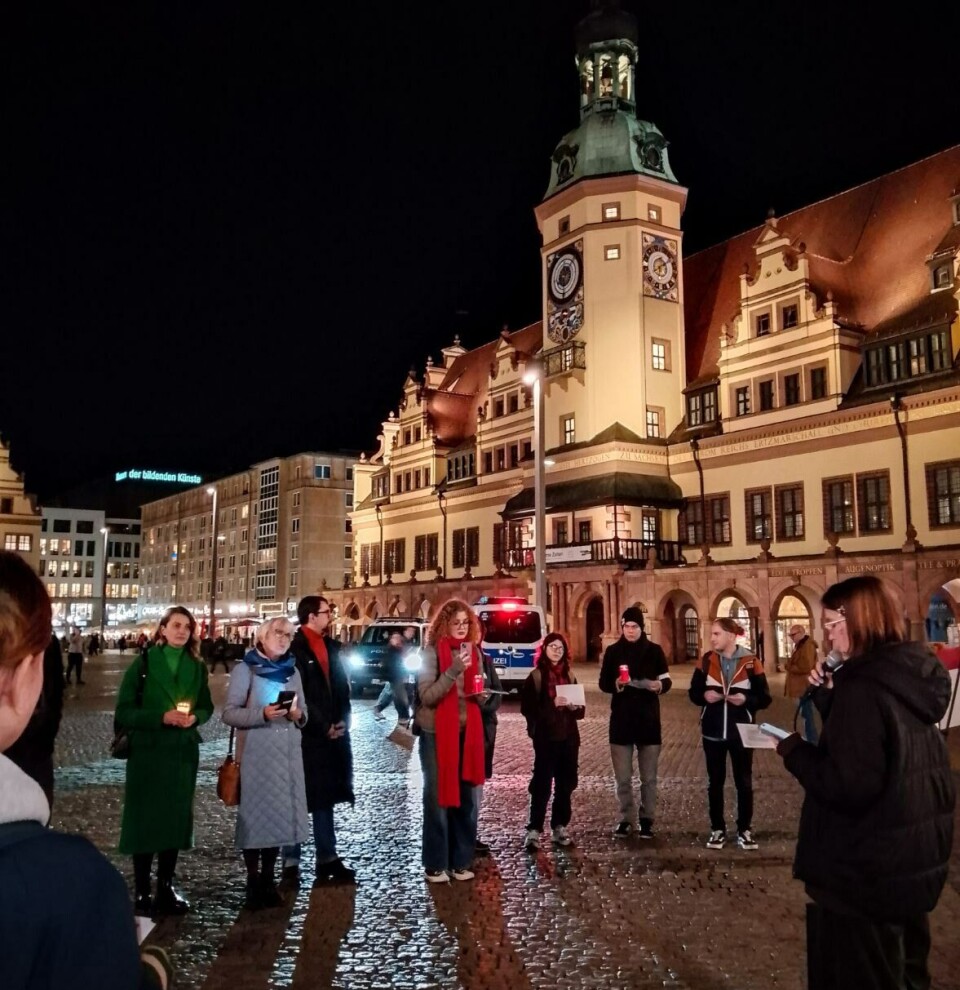
I believed that my grandmother’s brother Ivan, who was shot in Sandarmokh, and my grandmother’s brother Fyodor, who died in the camp, paid with their death for my right to speak freely. And literally until the summer of this year I was using this right; but the present state couldn’t care less about our rights and freedoms.
I believed that my grandmother’s brother Ivan, who was shot in Sandarmokh, and my grandmother’s brother Fyodor, who died in the camp, paid with their deaths for my right to speak freely. And literally until the summer of this year I was using this right; but our current state couldn’t care less about our rights and freedoms.
Our society has not yet digested the lesson that it was given in the previous century. And it is precisely for that reason that this lesson is now being repeated. How was Germany able to build a democratic society? Only because they lost the war and went through repentance. We have had no repentance, and that is why we will repeat this lesson again and again.
“Now it turns out that my descendants will have something to study in my biography too”
Irina Nippolainen, Leipzig. Originally from Karelia, is living in Germany on a humanitarian visa. She left the country after a search that took place at her home and at her friend’s place.
I am being threatened in my homeland. One businessman wrote that he would not let me live in peace if I return. Some woman was very indignant that I am receiving a Russian pension and very strongly wished that it would be taken away from me. But once I wrote on social networks that as soon as the regime changes, I will return on the first flight. And one of my students (I worked at school for 20 years) replied with malice: “That means you will never return.” That is, this is the classic story about “enemies of the people.”
It’s such a collapse, there is such disappointment in people. And now I am in despair, because I see no sense in anything at all; but repression is something the whole world must remember, it has to be hammered into every person’s head.
Of course, I consider myself repressed. If we had stayed, there would have been both a trial and a sentence. When I was studying genealogy, I looked into the history of my ancestors, and I thought: “Well, just look at what kind of life they had…” That was in the early 2000s. And now it turns out that my descendants will have something to study in my biography, too,.
I found a lot of information about repressed ancestors; those are the names I read aloud at the recent event. While living in Karelia, I went to Sandarmokh; there I met Yury Dmitriev — and there, in Sandarmokh, the brother of my great-grandmother was killed. This is the story of my family.
My mother’s grandfather refused to join the collective farm when collectivization happened. So he was labelleda kulak, given ten years in the camps; I still don’t know where he died. His wife was taken to a camp for wives of enemies of the people; after the war she was released.
And I found another great-grandfather on the website “Returned Names.” And I literally got goosebumps, because my father didn’t know that he had been shot. I made an inquiry, and the FSB sent many documents about my relatives. And when you see this word — “shot” — it really sends chills down your spine.
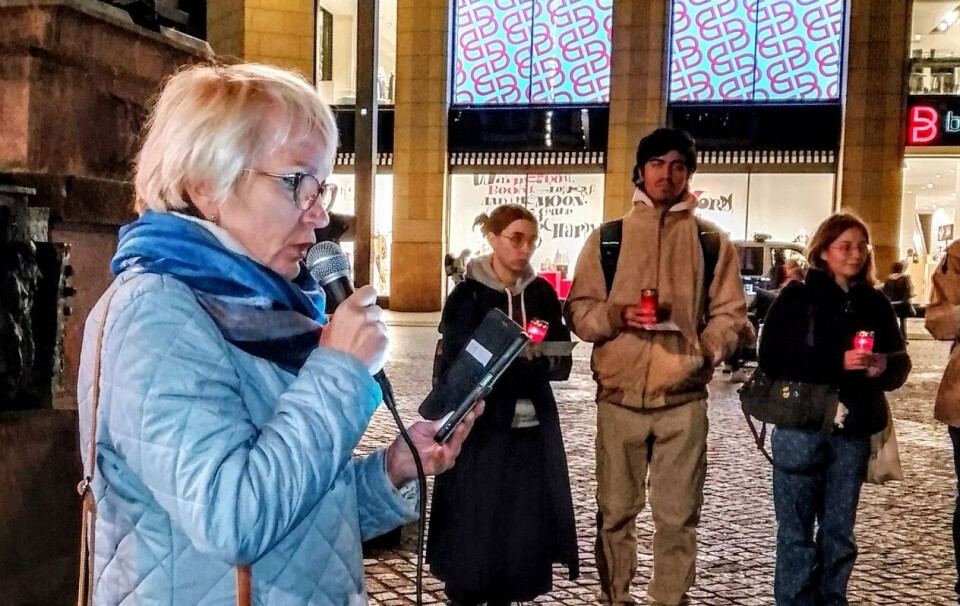
One of the documents was signed personally by my great-grandfather; and his handwriting is just like my father’s! My great-grandfather was 60 years old; he had three children, including one still a minor. And when I went to Sandarmokh and saw the execution pits, I imagined how he, an innocent man, was simply taken and killed.
One cannot fail to remember this — it’s simply impossible. People who don’t know about this are now restoring monuments to Stalin, you understand? The whole country needs learn about it. And history must not be distorted, as they are trying to do now with Sandarmokh.
Now I feel a lot of pain and fear fear due to the fact that this is repeating, that people have not learned the lessons. Well, the archives are open, this has been spoken about, written about, right? One would like to think that we, as a civilization, are moving forward. But it seems to me that this country will just keep going around in circles. No conclusions have been reached, and the crowd again rushes with accusations of “foreign agents” and the “fifth column.”
“Intimidate people and keep them under control”
Mikhail Kopotev, Helsinki. Linguist, works at the University of Helsinki. Originally from Karelia, he lives in Finland.
In 1943 the Finnish part of my family was exiled from Karelia to Siberia. My grandmother was pregnant with my mother, her labour began, and they were unloaded at a random station in the Urals — they didn’t make it to Siberia. But the rest of the relatives were taken further. Some kind people sheltered the small family, and that saved them.
By the way, I found out why, in fact, they were unloaded. My colleagues from the project “Echo of the Gulag” explained that this was a way for the convoy guards to control the level of mortality: it was more desirable to unload people who might not make it, so as not to spoil the statistics.
I left Russia in 1999. I clearly remember that I went back for the first election that Putin was in to vote against him. Many people were inspired by the young leader; for me, for example, it was enough that he spoke German. I don’t want to say that I predicted war — but for me his KGB past unambiguously outweighed all else. I had afeeling — “We don’t believe in this system.”
For those who are in power in Russia today, repression is an instrument they use whenever they need it. They needed to eliminate Politkovskaya to silence the tragedy in Chechnya — they eliminated Politkovskaya. And if in some situation they need to intimidate entire groups of people, they will do it.
The scale of Putin’s repressions is, after all, smaller than Stalin’s: back then there was a plan — a massive reshaping of society through the destruction of entire classes and the resettlement of peoples. But Putin, it seems to me, his idea is to intimidate people and keep them under control.
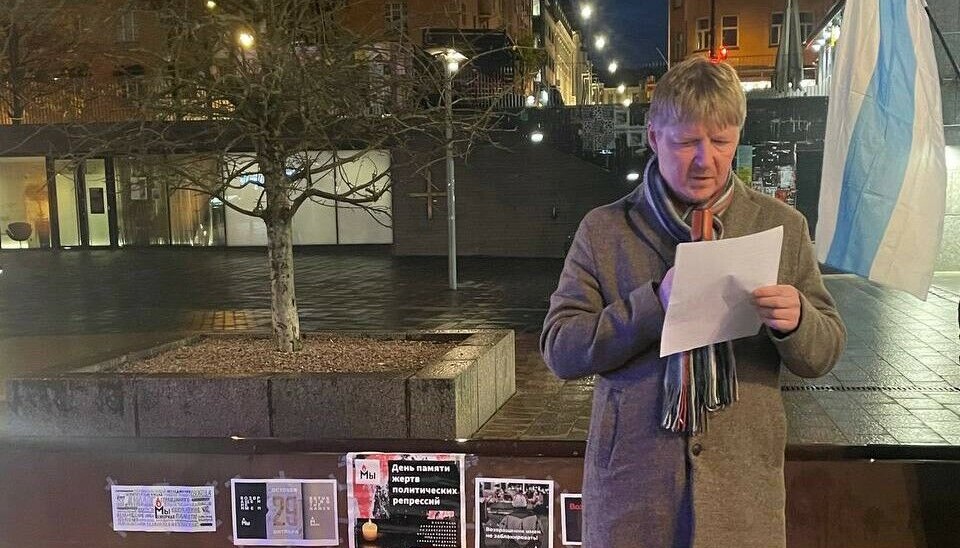
The format of the event — the reading of names — is a very clear prescription. We show the scale of the tragedy. You receive a sheet of paper, and it says there — “peasant, engineer, teacher”; and on it goes, flowing, flowing, flowing… And this shows very well how monstrously massive the repressions were!
My wife and I recently watched a film about the Holocaust. There is a dark spot in Finnish history — eight Jews were handed over to the Nazis — and recently a film was made on that subject. And we were reasoning: should Finns be endlessly reminded of this? And should Russians be reminded of the tragedy of repressions? After all, we don’t endlessly talk about events that happened, say, in the 5th century AD. Where is the boundary of our memory and responsibility?
And we came to the conclusion that if this danger remains in the structure of society, then one has to keep remembering it. Soviet history is our history. And if we feel that we are connected to a certain period of history, we must keep reminding ourselves of what was done in that period — of the successes, and of the terrible things.
There is a Harvard professor, Steven Pinker, who believes that over time the bloodthirstiness of societies is decreasing, and with each turn of history fewer people perish. If we speak about some foreseeable horizon, I am very pessimistic: I think Russia has been bogged down for decades in this semi-repressive, semi-dictatorial swamp. But in some long-term perspective, the wheel of history will pull all countries out of this swamp. Only, I’m afraid, this will not happen in our lifetime.














